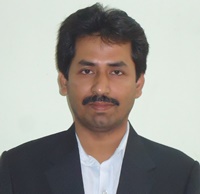ABOUT THE COURSE:
The name of the course is Welding Application Technology. As the name implies in this
course I will try to cover the fundamental overview of the traditional/ industrial welding
technology especially those welding processes which are widely used in manufacturing
industries. I will also try to cover the detail concepts of design and analysis of welding joints,
heat treatment and weld induced residual stresses & distortions and its measurement. This
will help the participants to understand and apply this knowledge of welding in practice for
various industrial applications. It will also encourage academic participants to increase the
research interest in the field of welding. In this present course the primary focus is on basic
fundamental of welding and its importance in industries.
The brief overview of the course content can be stated like; this course will cover the
industrial relevance of welding processes. It will give the fundamental knowledge of various
important welding processes which includes most of the important fusion welding, solid state
welding (i.e. Friction Welding, FSW etc.) and solid-liquid state welding (i.e. Shouldering and
Brazing). It will also cover the importance and applications of all these welding techniques.
This course will highlight the safety precautions to be followed in different welding
techniques.
This course also will cover the basic concepts of weld induced residual stresses and
distortions. In this course, the concepts of different residual stresses measurements techniques
will be provided. This course also will provide the fundamental concepts of residual stresses
and distortions mitigation techniques. This course also will provide the basic fundamental
concept on design and analysis of welding joints. This course includes most of the important
topics related to static analysis of welded joints which included ‘Design and Analysis of Butt
and Fillet Welds Joints, Strength Calculation of Parallel & Transverse Fillet Welds, Analysis
of Eccentrically Loaded Welded Joint, Analysis of Welded Joint Subjected to Bending
Moment’.
INTENDED AUDIENCE : Students (UG and PG); Participant from any manufacturing
industry
PREREQUISITES : BE/BTech In Mechanical/Production/
Manufacturing Sciences/Power Plannt Engg/ Naval And
Arcitucture Engg
INDUSTRY SUPPORT : Nil (But if any manufacturing industry participant want to
participate then the can be allowed.)

DOWNLOAD APP
FOLLOW US